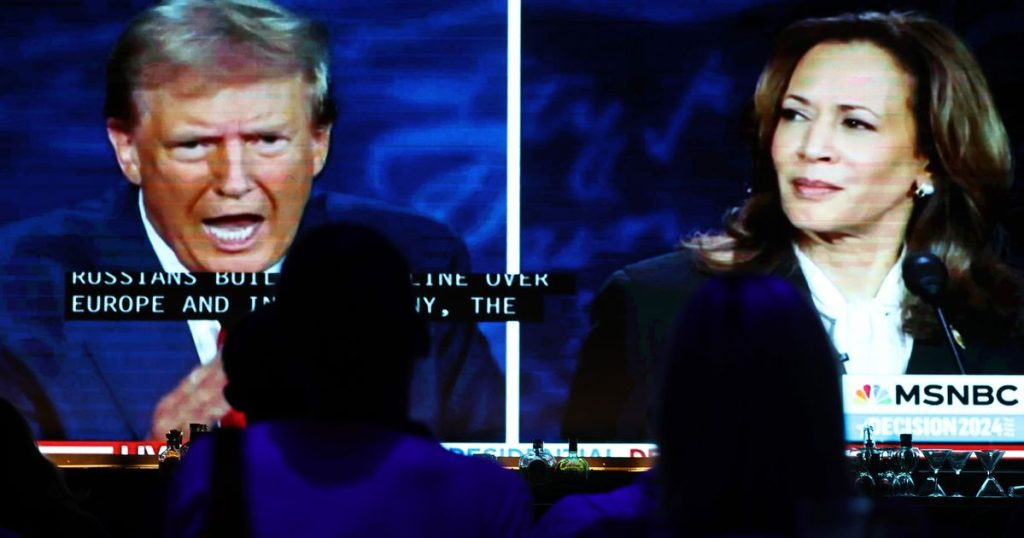During Tuesday night’s presidential debate, former President Donald Trump faced criticism for his past actions in connection to the Central Park Five case, in which five Black and Latino teenagers were wrongfully accused of raping a jogger in New York City in 1989. Trump, who had taken out ads calling for their execution, defended his actions during the debate, stating that because the teenagers had pleaded guilty, they must have been guilty of the crime. This stance was met with outrage from those involved, including Yusef Salaam, one of the exonerated men, who approached Trump after the debate to express his disapproval.
Yusef Salaam, now a New York City Council member, made it clear that he was not on Trump’s side, despite the former president’s attempt to suggest otherwise. The Central Park Five, now known as the Exonerated Five, had spent between five and 12 years wrongfully imprisoned before DNA evidence proved another man was responsible for the crime. In a show of solidarity, four of the exonerated men appeared onstage at the Democratic National Convention last month, where they shared their story and expressed their disappointment in Trump’s refusal to acknowledge the new evidence that exonerated them.
Trump’s continued defense of his actions in the Central Park Five case has drawn criticism from civil rights activists and others who see his refusal to apologize as indicative of his broader attitudes towards race and justice. The case has become a focal point in discussions about systemic racism and the need for criminal justice reform, with many pointing to it as an example of the flaws and biases in the justice system. The re-emergence of the case during the presidential debate shed light on the lasting impact of Trump’s actions and the need for accountability for those who perpetuate racist beliefs and policies.
The Central Park Five case serves as a reminder of the consequences of racial bias and the importance of seeking justice for those who have been wronged by the legal system. The exoneration of the five men highlights the potential for wrongful convictions, particularly when fueled by political agendas and public pressure. The case has also sparked conversations about the ways in which marginalized communities are disproportionately affected by systemic injustices and the need for reforms to address these disparities.
As the debate over the Central Park Five case continues to unfold, it is clear that the legacy of Trump’s actions in this case will have lasting repercussions for those involved and for the broader conversation around racial justice in America. The refusal to admit fault and offer an apology to the exonerated men underscores the need for accountability and reconciliation in cases of wrongful convictions. By bringing attention to this case and the broader issues it raises, advocates hope to create meaningful change in the criminal justice system and prevent similar injustices from occurring in the future.


